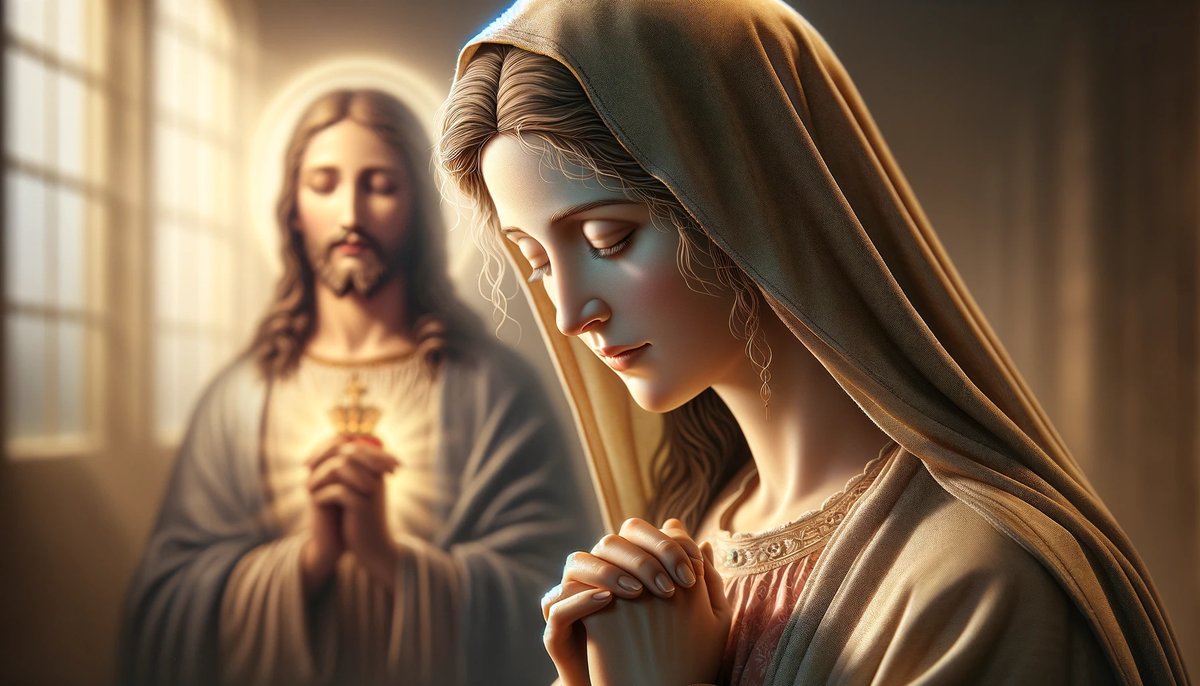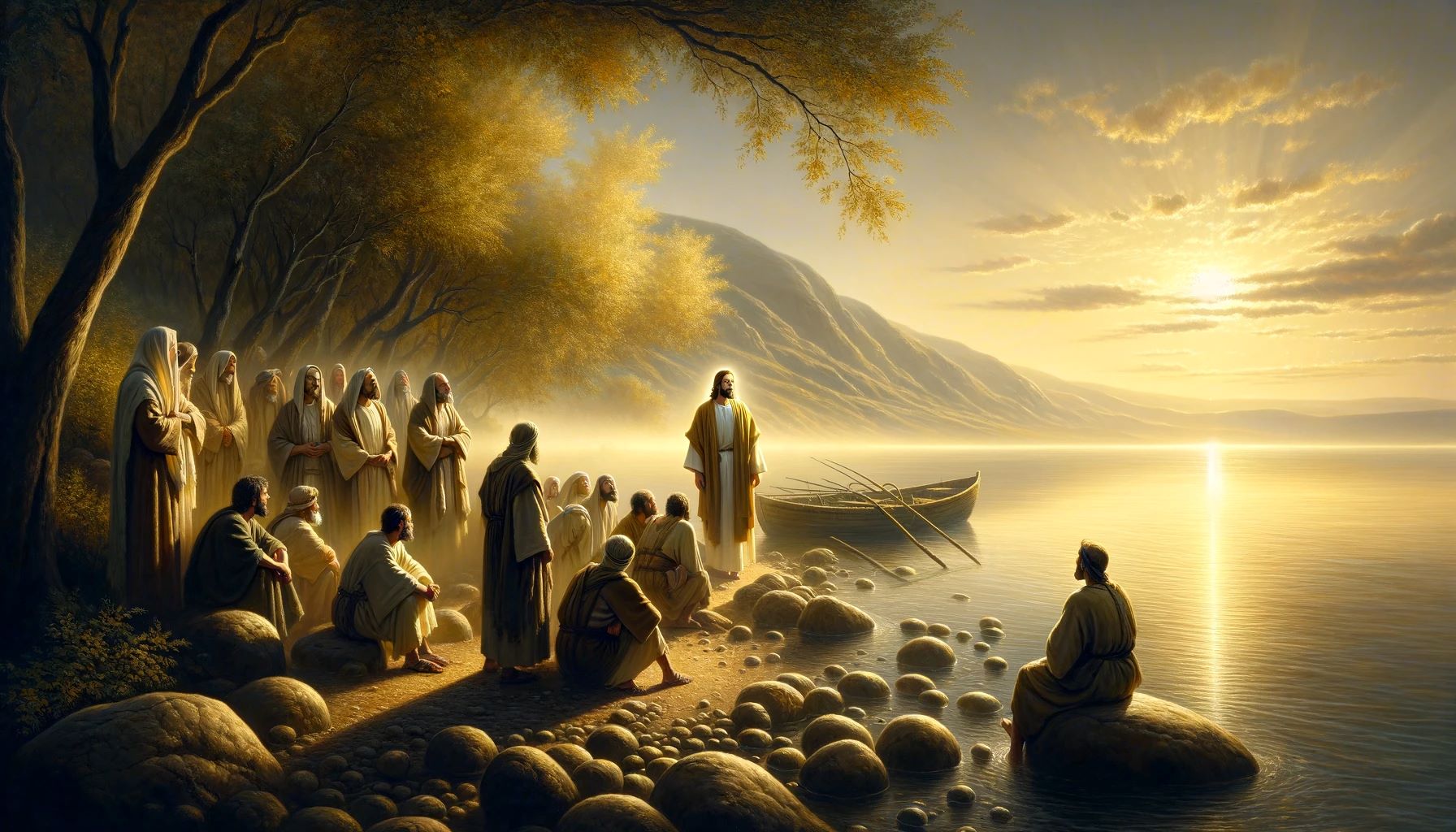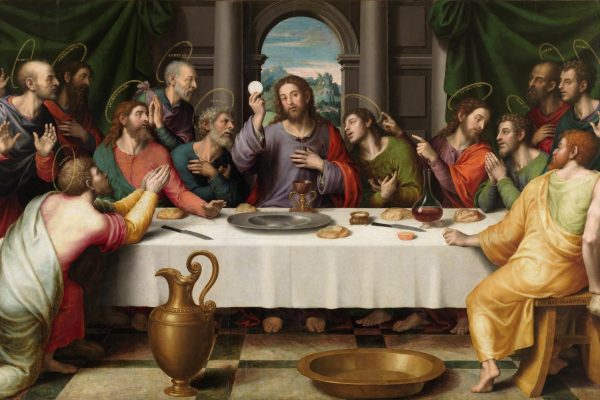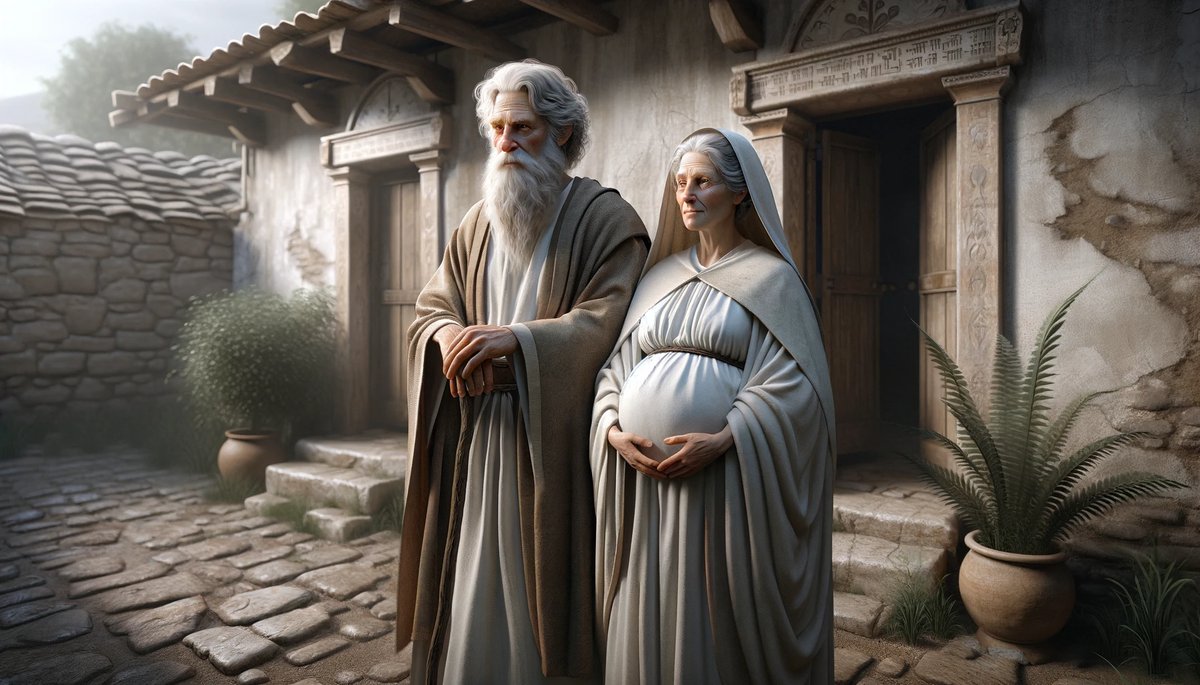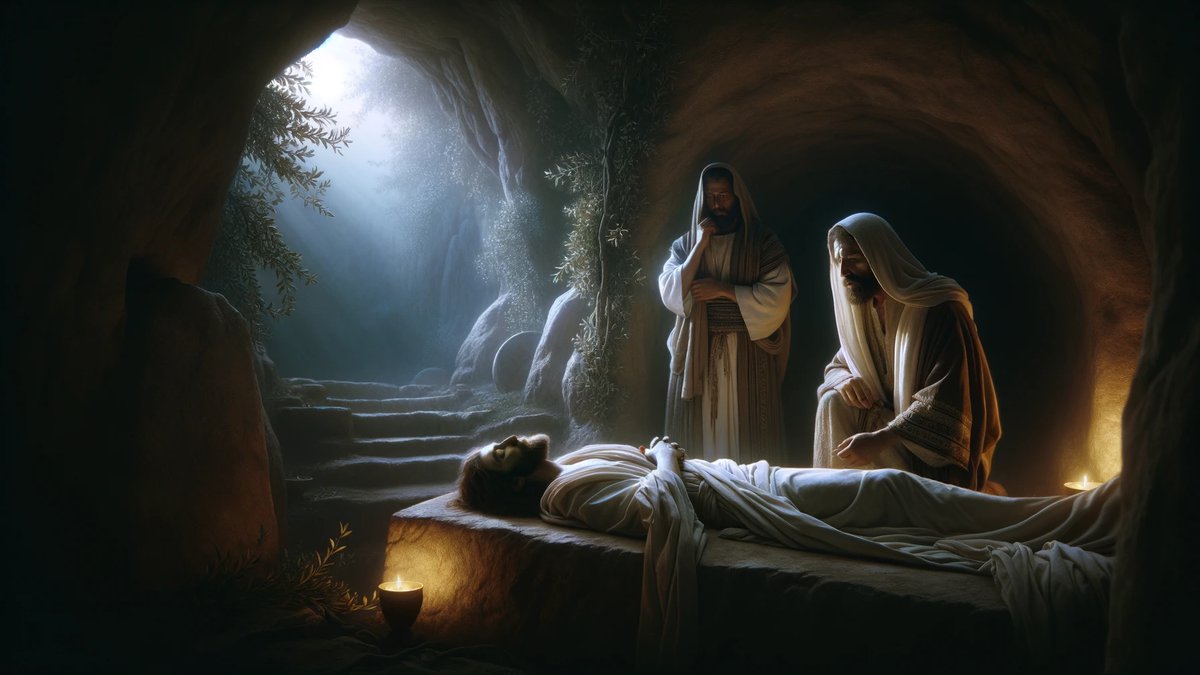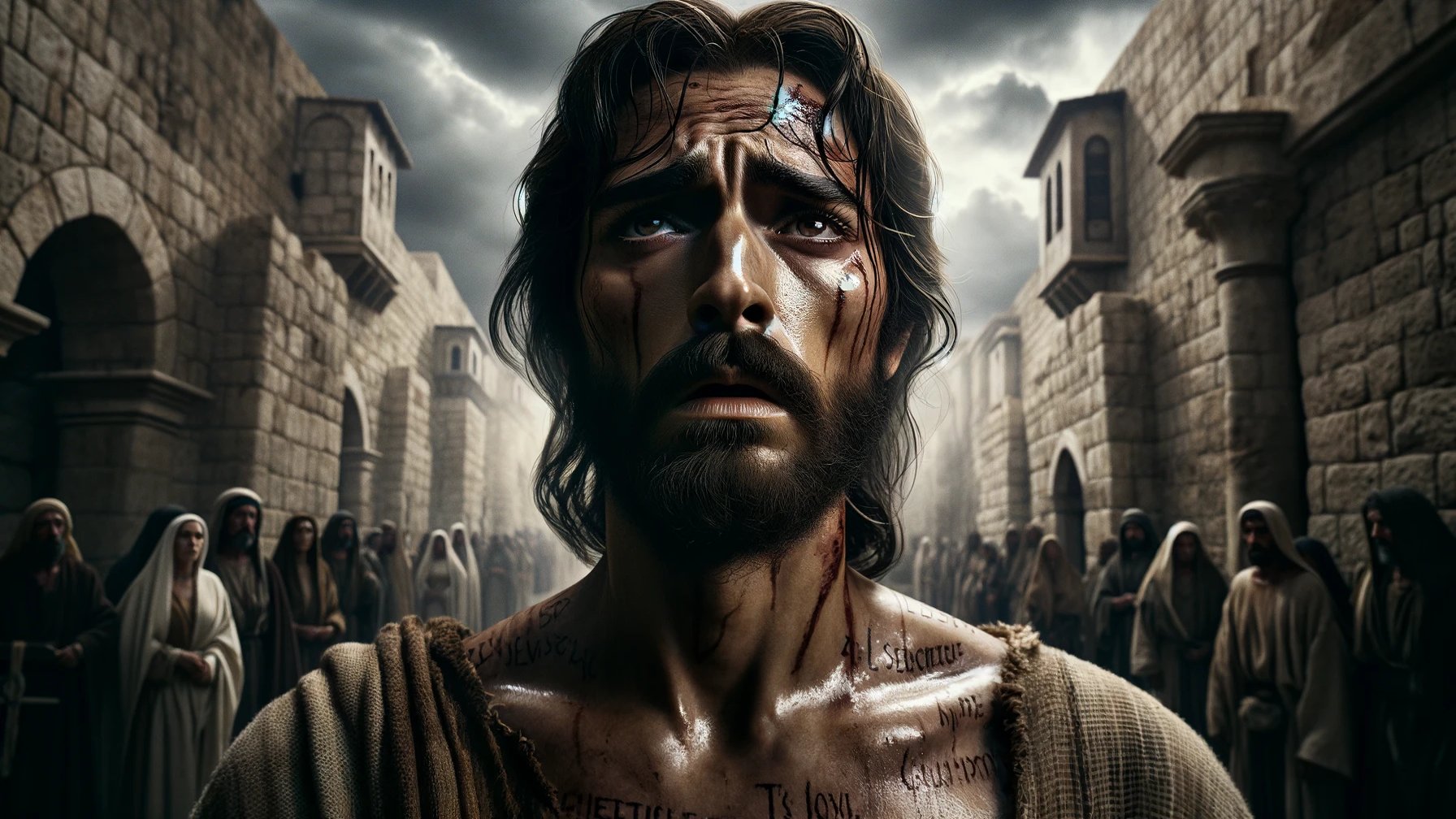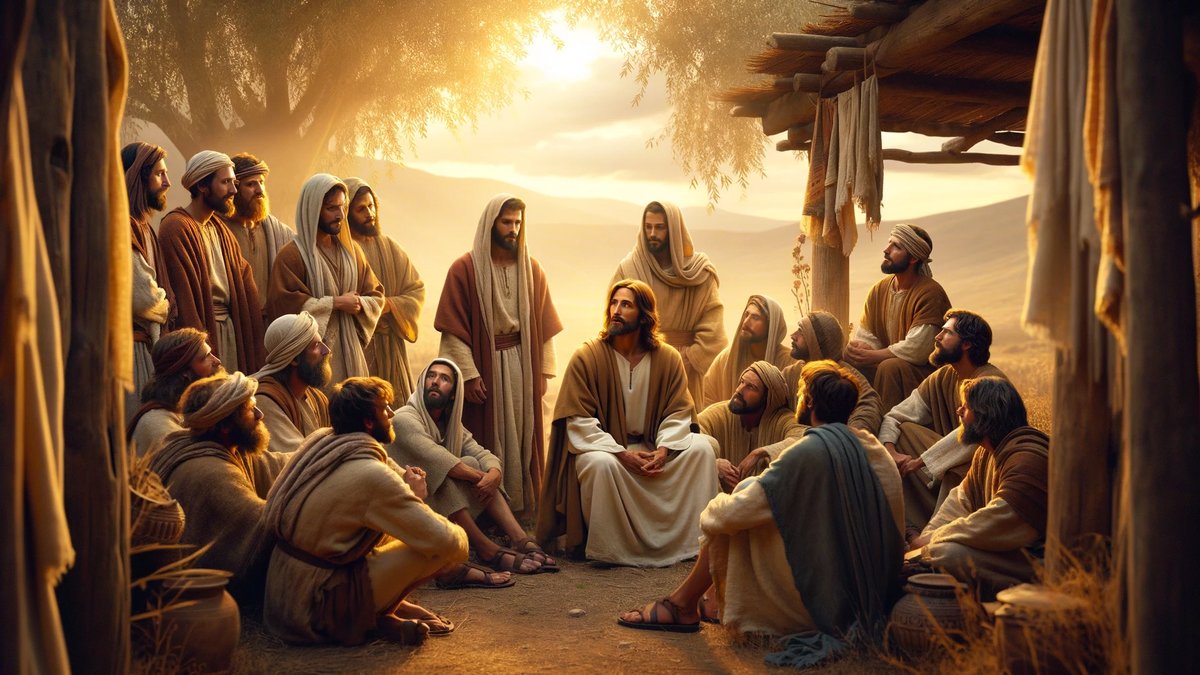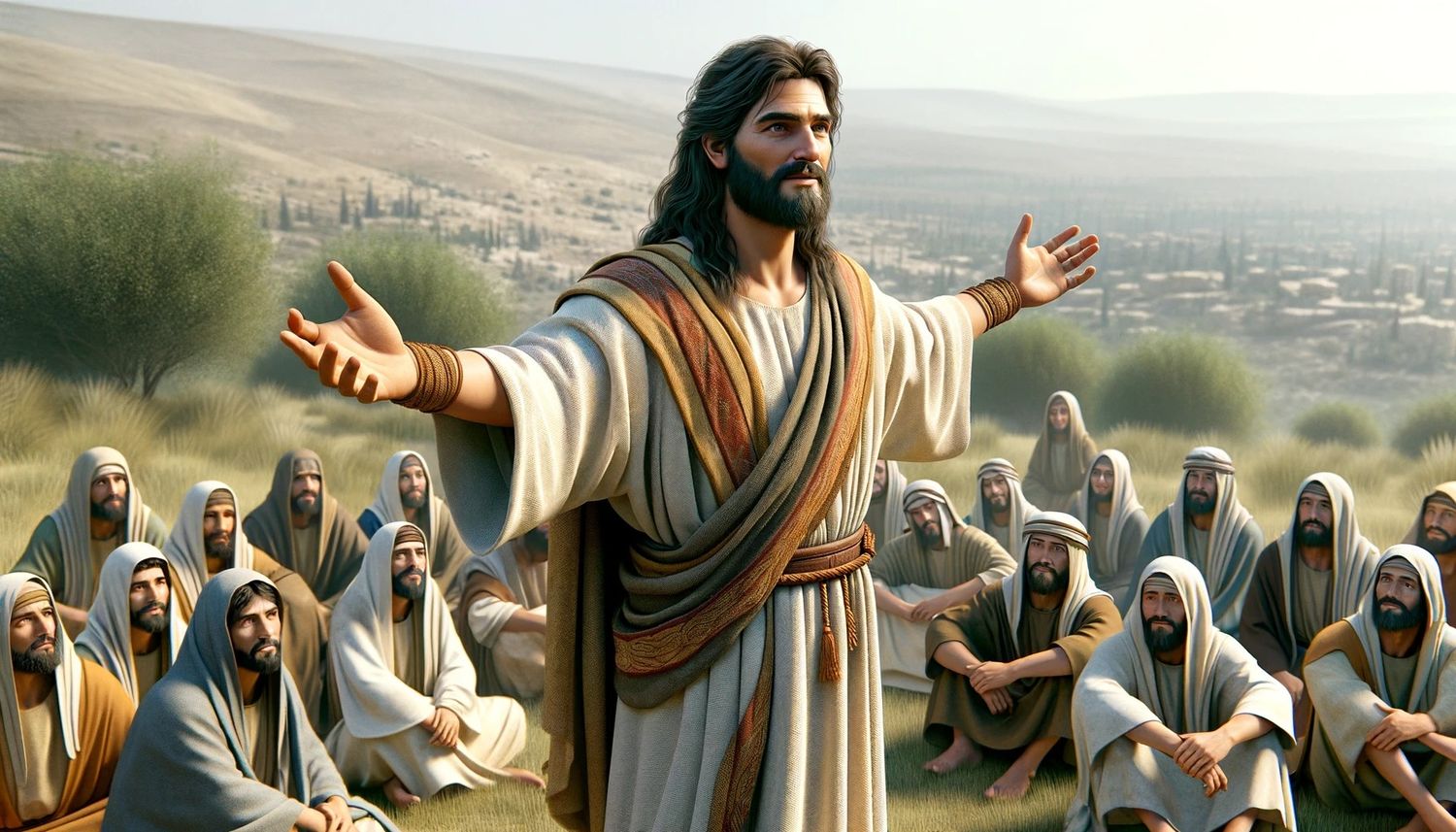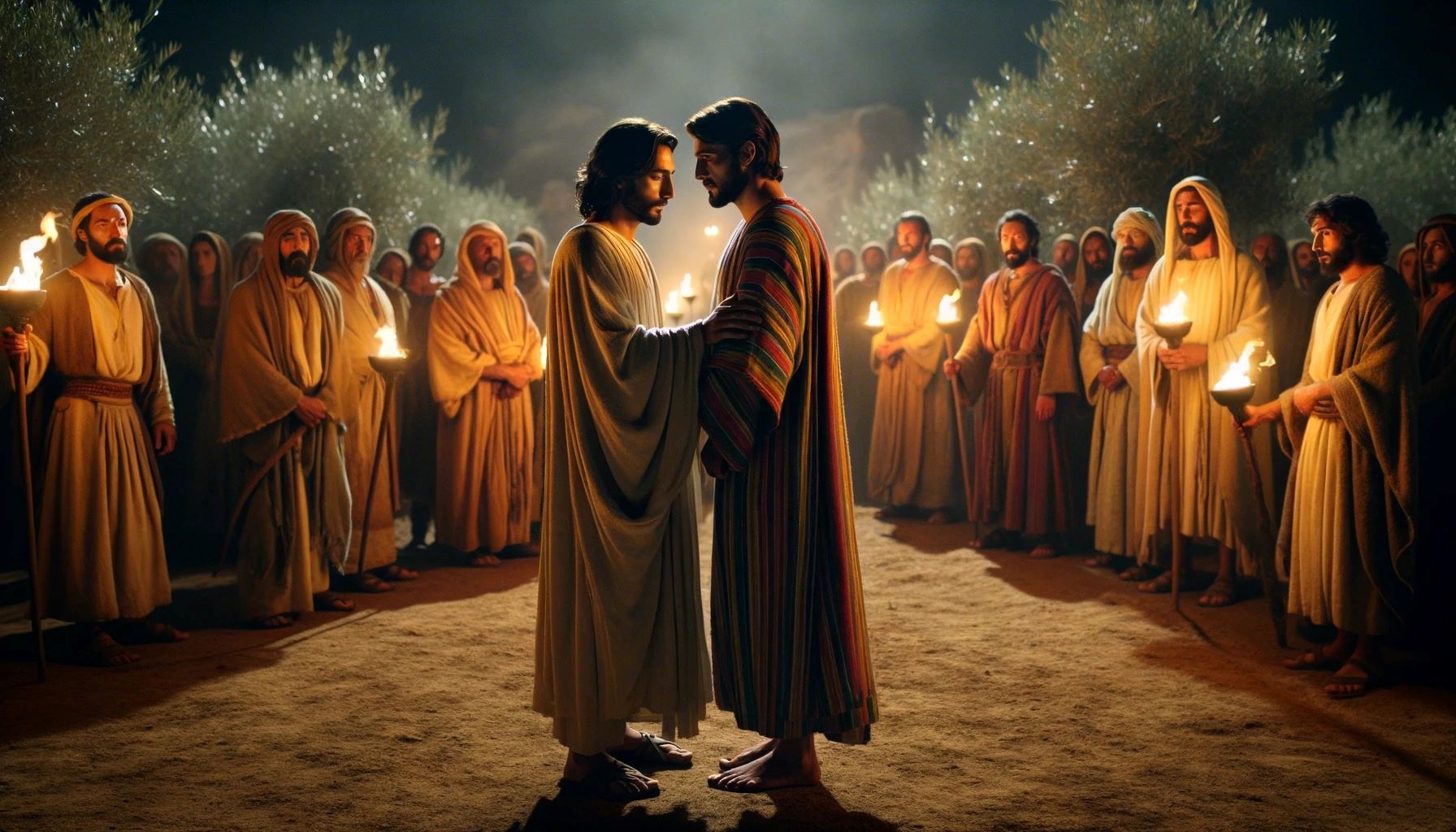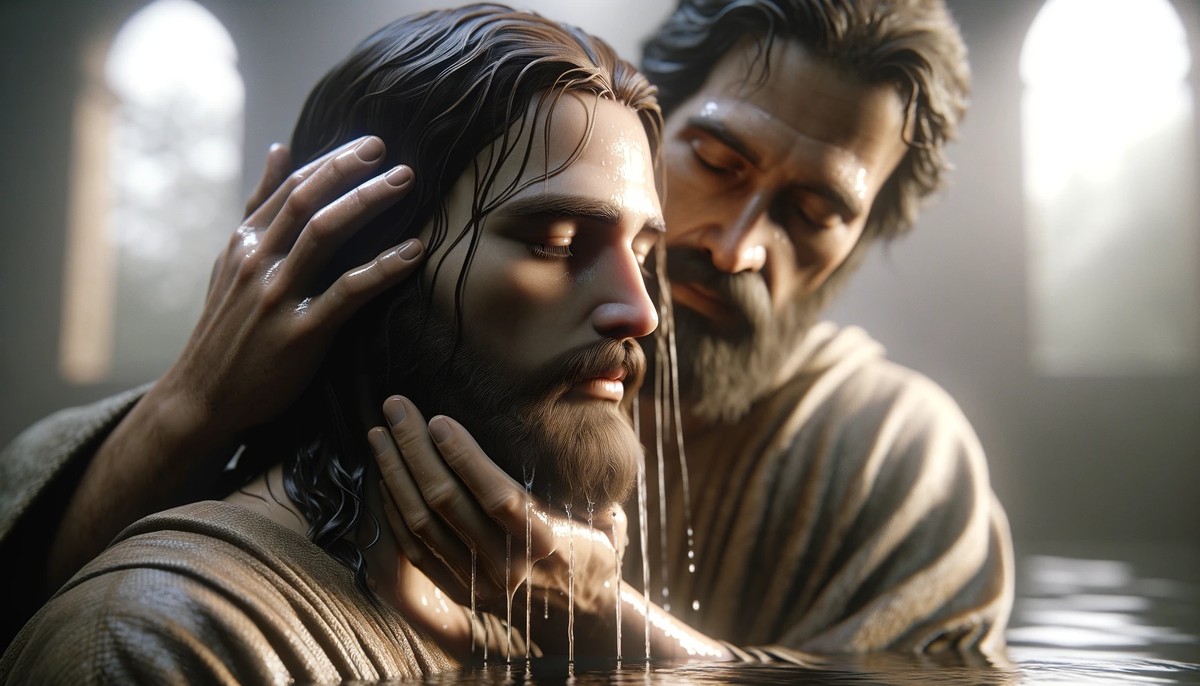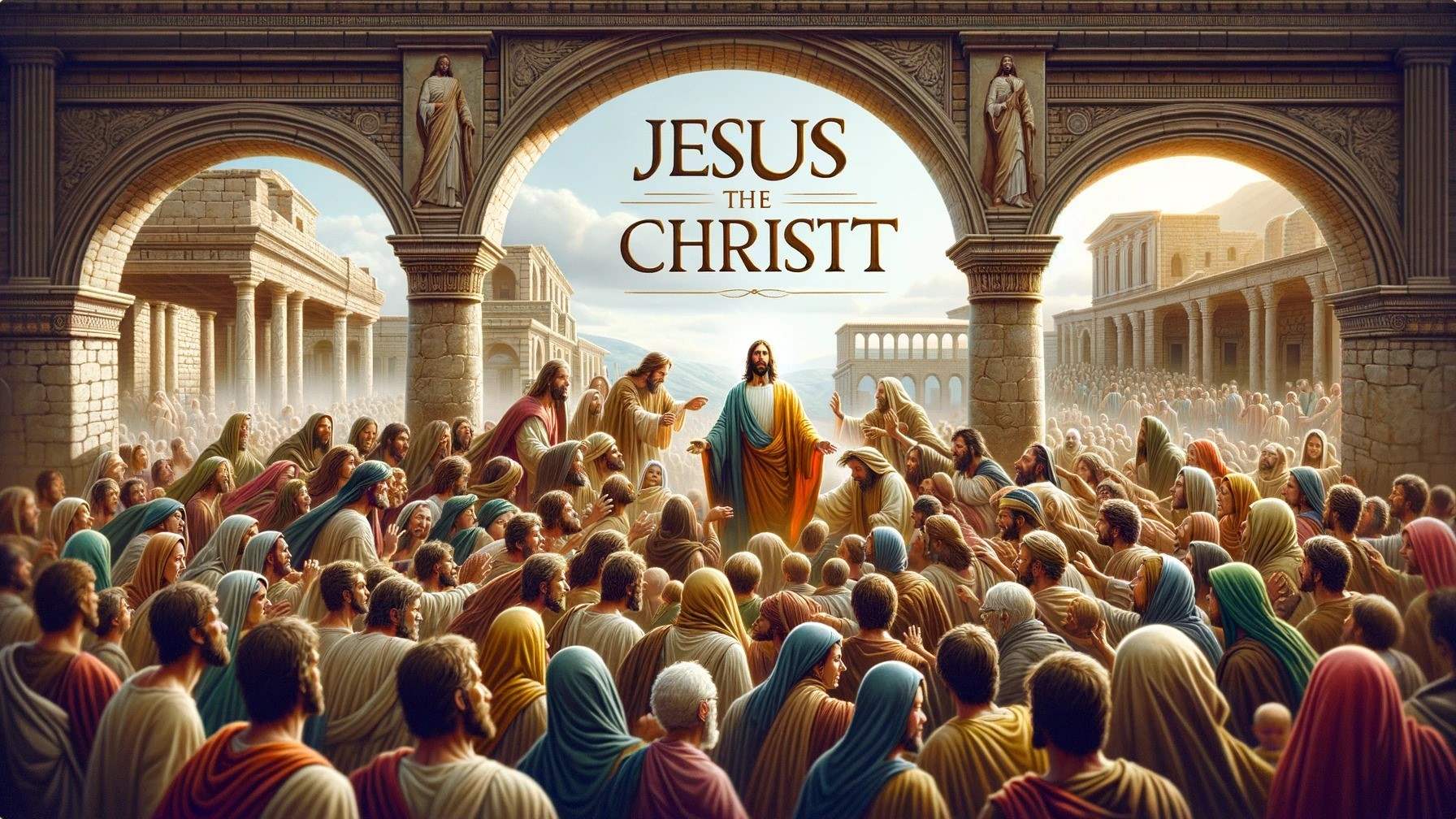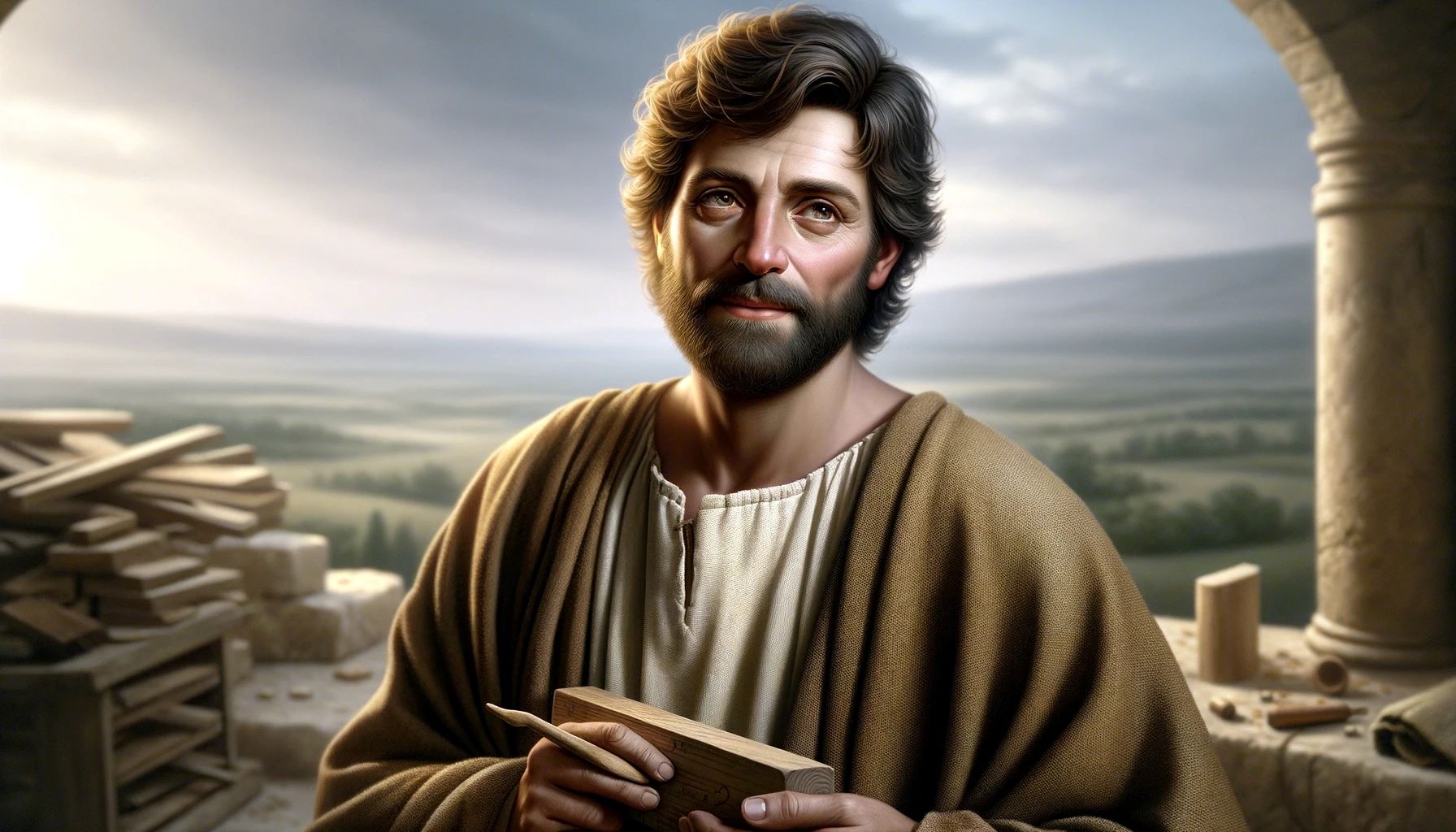Home>Christian Videos>Bible Stories>Who Were The Parents Of Jesus Christ
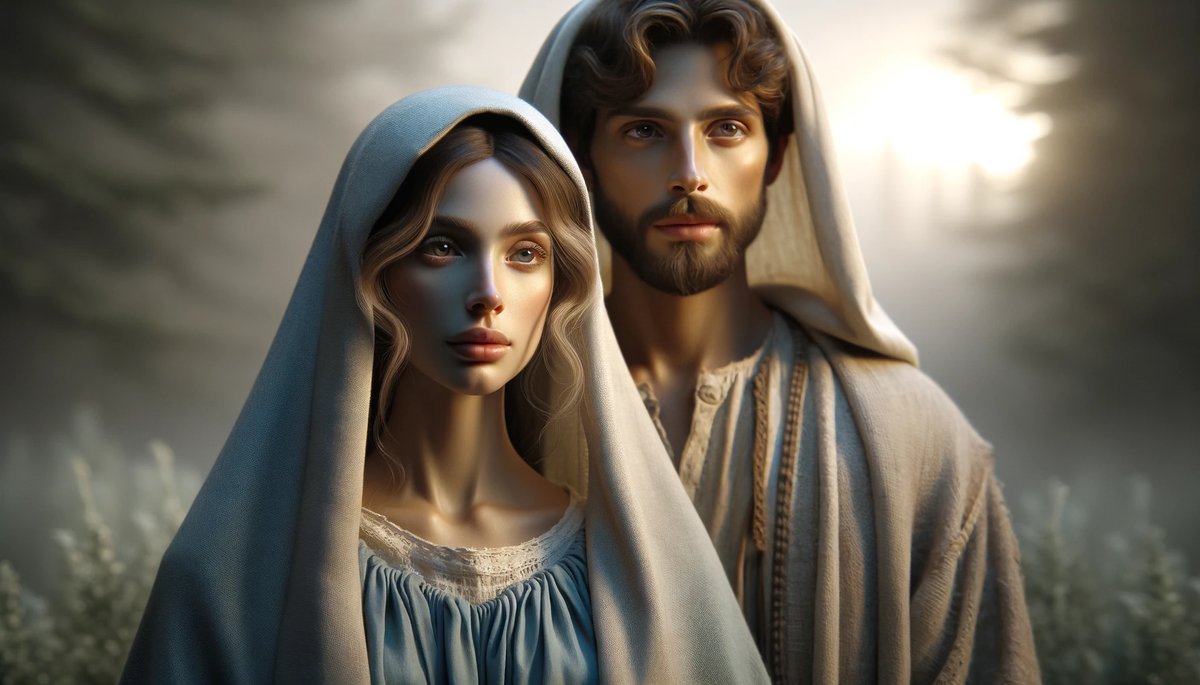

Bible Stories
Who Were The Parents Of Jesus Christ
Published: March 2, 2024
Jason DeRose, Managing Editor at Christian.net, uses his expertise in religion and journalism to deepen understanding of faith's societal impacts. His editorial leadership, coupled with a strong academic background, enriches the platform’s diverse content, earning him recognition in both journalism and religious circles.
Discover the biblical account of the parents of Jesus Christ and their significance in the Bible stories. Explore the lineage and background of Jesus's parents in this insightful read.
(Many of the links in this article redirect to a specific reviewed product. Your purchase of these products through affiliate links helps to generate commission for Christian.net, at no extra cost. Learn more)
Table of Contents
Introduction
Who were the parents of Jesus Christ? This question has intrigued and fascinated people for centuries. The identity of Jesus' parents is a central aspect of Christian belief and has been the subject of much theological and historical debate. In this article, we will delve into the ancestry of Jesus Christ, the roles of Mary and Joseph in his life, as well as explore some of the theories and speculations surrounding the parents of Jesus Christ. Join us as we unravel the mystery and significance of the individuals who played a pivotal role in the life of one of the most influential figures in history.
Read more: Who Were Jesus Christ’s Siblings
The Ancestry of Jesus Christ
The ancestry of Jesus Christ is a crucial aspect of Christian faith and is traced back through the genealogy presented in the Gospels of Matthew and Luke. According to the Gospel of Matthew, Jesus is a descendant of King David through his father, Joseph. The genealogy in Matthew traces Jesus' lineage back to Abraham, emphasizing his connection to the promises and covenants made by God in the Old Testament. On the other hand, the Gospel of Luke provides a genealogy of Jesus that extends all the way to Adam, emphasizing Jesus' universal significance as the Savior of all humanity. Both genealogies highlight the fulfillment of Old Testament prophecies and the divine plan for the redemption of humanity through the birth of Jesus Christ.
-
Matthew's Genealogy: The genealogy in the Gospel of Matthew presents Jesus as the legal heir to the throne of David through his father, Joseph. It consists of three sets of fourteen generations, symbolically emphasizing Jesus' royal lineage and the fulfillment of Old Testament promises. This genealogy establishes Jesus' rightful claim to the messianic title and emphasizes his connection to the history and destiny of the Jewish people.
-
Luke's Genealogy: In contrast, the genealogy in the Gospel of Luke emphasizes Jesus' universal mission and his role as the Savior of all people. It traces Jesus' lineage back to Adam, highlighting his connection to the entire human race. This genealogy underscores the inclusive nature of Jesus' ministry and the fulfillment of God's plan for the redemption of humanity.
The genealogies of Jesus Christ not only establish his rightful place in the divine plan of salvation but also emphasize the continuity between the Old Testament promises and their fulfillment in the person of Jesus. They serve as a testament to the significance of Jesus' earthly lineage and his role as the fulfillment of God's promises to humanity.
The Role of Mary in Jesus' Life
Mary, the mother of Jesus, occupies a central and revered position in Christian theology and devotion. Her role in Jesus' life extends beyond that of a biological mother and encompasses profound spiritual and theological significance. According to the Gospels, Mary was chosen by God to bear the Son of God, making her the vessel through which the incarnation of Jesus took place. This divine election and her willing acceptance of this monumental responsibility underscore her pivotal role in the Christian narrative.
-
The Annunciation: The pivotal moment in Mary's life is the Annunciation, where the angel Gabriel appeared to her and announced that she would conceive and bear a son who would be called the Son of the Most High. Mary's response, "Let it be to me according to your word," exemplifies her unwavering faith and submission to the divine will. This event marks the beginning of her extraordinary journey as the mother of Jesus.
-
The Nativity and Early Years: Mary's role in nurturing and raising Jesus is depicted in the Gospel narratives, particularly in the accounts of the Nativity and the early years of Jesus' life. Her presence at the manger, her protection of Jesus from King Herod's decree, and her guidance during his formative years all highlight her maternal care and influence on the life of Jesus.
-
At the Wedding in Cana: The Wedding at Cana, where Jesus performed his first public miracle, also showcases Mary's role in Jesus' ministry. Her intercession with Jesus on behalf of the wedding hosts demonstrates her belief in his divine abilities and her encouragement for him to begin his public ministry.
-
At the Cross: Perhaps the most poignant moment in Mary's role in Jesus' life is her presence at the foot of the cross during his crucifixion. Jesus' words to her, "Woman, behold your son," and to the disciple, "Behold your mother," signify the entrusting of Mary to the care of the beloved disciple, symbolizing her maternal role not only to Jesus but also to all believers.
Mary's significance in the life of Jesus extends beyond her biological relationship with him. Her obedience, faith, and unwavering support of Jesus' mission exemplify her profound spiritual role in the Christian narrative. She is venerated as the Theotokos, the Mother of God, in many Christian traditions, and her influence on the life and ministry of Jesus continues to be a source of inspiration and devotion for millions of believers around the world.
The Role of Joseph in Jesus' Life
Joseph, the earthly father of Jesus, is a figure of great significance in the Christian narrative, despite the limited mention of him in the Gospels. His role in Jesus' life extends beyond that of a legal guardian and provides valuable insights into his character and influence on the upbringing of Jesus.
-
The Nativity and Protection: Joseph's role in the Nativity story is pivotal. He is depicted as a righteous and compassionate man who, upon learning of Mary's pregnancy, is visited by an angel in a dream and instructed to take Mary as his wife. His obedience to the divine message and his willingness to protect Mary and the unborn Jesus from societal judgment and harm demonstrate his integrity and devotion to God's plan.
-
The Protector and Provider: Joseph's role as the protector and provider for the Holy Family is evident in the Gospel narratives. Fleeing to Egypt to escape King Herod's decree, Joseph ensured the safety of Jesus and Mary, exemplifying his commitment to safeguarding the life of the infant Jesus. His role as a nurturing and supportive father figure during Jesus' formative years in Nazareth highlights his influence on Jesus' upbringing and character.
-
The Teacher and Mentor: As a carpenter by trade, Joseph is traditionally regarded as having passed down his skills and knowledge to Jesus, shaping his understanding of craftsmanship and providing a foundation for his earthly vocation. Joseph's guidance and mentorship would have played a formative role in Jesus' development, emphasizing the significance of his earthly father's influence on his life.
-
The Spiritual Head of the Family: Joseph's role as the spiritual head of the Holy Family is underscored by his faithful adherence to Jewish customs and traditions, as well as his dedication to fulfilling the responsibilities of a father and husband within the context of his time. His role in presenting Jesus at the temple for the ritual of redemption and his participation in the annual pilgrimage to Jerusalem exemplify his commitment to nurturing Jesus within the religious and cultural framework of Judaism.
Joseph's role in Jesus' life, though often overshadowed by the prominence of Mary, is a testament to his unwavering faith, compassion, and dedication to fulfilling God's plan. His influence on the upbringing and development of Jesus is a significant aspect of the Christian narrative, highlighting the importance of his paternal guidance and support in shaping the life of one of the most influential figures in history.
Theories and Speculations about the Parents of Jesus Christ
-
Virgin Birth: One of the central beliefs in Christian theology is the doctrine of the Virgin Birth, which asserts that Jesus was conceived in the womb of Mary through the Holy Spirit, without the involvement of a human father. This miraculous conception is a cornerstone of Christian faith and emphasizes the divine nature of Jesus as the Son of God. The Virgin Birth has been a subject of theological contemplation and debate, with various interpretations and explanations offered to elucidate its significance in the Christian narrative.
-
The Davidic Lineage: The genealogies presented in the Gospels of Matthew and Luke trace Jesus' ancestry through Joseph and Mary, highlighting their connection to the lineage of King David. While Joseph's lineage establishes Jesus' legal claim to the throne of David, Mary's lineage is also significant in affirming Jesus' royal heritage. The intertwining of Joseph and Mary's genealogies underscores their shared role in fulfilling the messianic prophecies and emphasizes their collective significance in the divine plan for the redemption of humanity.
-
The Role of Joseph: In some theological and historical interpretations, Joseph's role as the earthly father of Jesus has been a subject of speculation. While the Gospels affirm Joseph's lineage and legal guardianship of Jesus, some perspectives have explored the symbolic and spiritual dimensions of Joseph's relationship with Jesus. The emphasis on Joseph's righteousness, obedience to divine messages, and his role as a nurturing and protective father figure has led to contemplation on the depth of his influence on Jesus' life and mission.
-
The Perpetual Virginity of Mary: Within certain Christian traditions, the belief in the perpetual virginity of Mary has given rise to theological reflections on the nature of her relationship with Joseph and the divine purpose underlying her unique role as the mother of Jesus. The affirmation of Mary's perpetual virginity has prompted discussions on the spiritual and symbolic implications of her marital union with Joseph and the significance of her singular position as the Theotokos, the Mother of God.
-
Theological and Historical Interpretations: Theories and speculations about the parents of Jesus Christ have been shaped by theological, historical, and cultural contexts, leading to diverse perspectives on the nature of Jesus' earthly family. The interplay of biblical narratives, early Christian traditions, and doctrinal developments has contributed to a rich tapestry of interpretations regarding the identity, roles, and significance of Joseph and Mary in the life of Jesus Christ.
The exploration of theories and speculations about the parents of Jesus Christ offers a glimpse into the multifaceted nature of Christian belief and the enduring fascination with the individuals who played a pivotal role in the life and mission of one of the most influential figures in history.
Read more: Who Were Jesus Apostles
Conclusion
In conclusion, the identity and significance of the parents of Jesus Christ, Mary and Joseph, are central to the Christian narrative and have been the subject of profound theological contemplation and historical inquiry. The genealogies presented in the Gospels of Matthew and Luke establish the ancestral lineage of Jesus, emphasizing his connection to the promises and covenants of the Old Testament. Mary's pivotal role as the chosen vessel for the incarnation of Jesus and Joseph's unwavering commitment to safeguarding and nurturing the Holy Family underscore their profound influence on the life and mission of Jesus. Theories and speculations surrounding the Virgin Birth, the Davidic lineage, the role of Joseph, and the perpetual virginity of Mary reflect the enduring fascination with the divine and human dimensions of Jesus' earthly family. The exploration of these themes offers valuable insights into the multifaceted nature of Christian belief and the enduring significance of the individuals who played a pivotal role in the life of one of the most influential figures in history.
